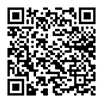what is a demat account

A demat account is a kind of account used to keep electronic copies of shares and securities. A Demat account is a dematerialized account in its complete form. A Demat account aims to hold shares that have been acquired or dematerialized (converted from physical to electronic shares), making online share trading simpler for consumers.
Depositories in India, such as the National Securities Depository Limited (NSDL) and the Central Depository Services Limited (CDSL), offer free Demat accounts. These services provided by intermediaries, depository participants, and stockbrokers, such as Dealmoney. Demat account costs differ based on the amount of money in the account, the form of subscription, and the terms and conditions between the depository and the stockbroker..
A demat account is a kind of account used to keep electronic copies of shares and securities. A Demat account is a dematerialized account in its complete form. A Demat account aims to hold shares that have been acquired or dematerialized (converted from physical to electronic shares), making online share trading simpler for consumers.
Depositories in India, such as the National Securities Depository Limited (NSDL) and the Central Depository Services Limited (CDSL), offer free Demat accounts. These services provided by intermediaries, depository participants, and stockbrokers, such as Dealmoney. Demat account costs differ based on the amount of money in the account, the form of subscription, and the terms and conditions between the depository and the stockbroker..

Open a Demat Account
What exactly is a Demat account?
A Demat Portfolio, also known as a Dematerialised Account, allows you to keep shares and stocks in an electronic environment. Shares are acquired and held in a Demat Account during online trading, making it easier for consumers to exchange. All of an individual's stock, government securities, exchange-traded funds, bonds, and mutual funds are kept in a Demat Portfolio.
What is the concept of dematerialization?
Transforming actual share certificates into electronic form, which is much easier to manage and available from anywhere in the world, is known as dematerialization. To exchange online, an investor must first open a Demat account with a Depository Member (DP). Dematerialization aims to make it easier for investors to track and control their shares by eliminating the need to keep physical share certificates.
The importance of a Demat account
A Demat account helps you to hold your stocks and shares in a safe and secure digital environment. Physical credentials are protected against theft, forgery, loss, and damage. A Demat account use to transfer shares explicitly. When the trade is registered, the shares are digitally transferred to your account. You benefit from reduced trading rates, and there is no stamp tax involved with the selling of bonds. These features and benefits of a Demat account enable investors to trade more often, increasing their chances of gaining.
How does a Demat Account work?
Trading on a Demat account is identical to physical trading, with the fact that it is conducted online. Using your online trading account, you place an order to start trading. Both trading and Demat accounts must be linked to accomplish this. The exchange will handle the order after you've set it. Info of your demat account Until the order is processed, the securities' stock price and availability are checked. Shares are expressed in your declaration of holdings after the processing is completed. A shipping instruction notice with stock information must be given when a shareholder wants to sell shares. The account is then debited for the shares, and the cash balance is added to the trading account.
Recent Posts
Download The Dealmoney App Now
Latest Top 10 Performing Funds
| Scheme Name | NAV on | Holdings | Returns (%) | Fund Manager | Rating | |
|---|---|---|---|---|---|---|
| Tata Nifty Pvt Bank ETF | 112.1161 | ₹ 953.7591472 Cr | 24.1384707538614% | Sailesh Jain | 1 | |
| ICICI Pru Technology Fund(G) | 53.41 | ₹ 35414.76052571 Cr | 23.1765904789635% | Sankaran Naren , Vaibhav Dusad , Priyanka Khandelwal | 2 | |
| Edelweiss ETF - Nifty Bank | 2047.9931 | ₹ 72.31 Cr | 22.3638817077987% | Bhavesh Jain , Hardik Verma | 3 | |
| SBI-ETF Nifty Bank | 202.4212 | ₹ 242503.74 Cr | 22.2708812094408% | Raviprakash Sharma | 3 | |
| Kotak Banking ETF | 205.2306 | ₹ 379580.55 Cr | 22.2131952311096% | Devender Singhal , Satish Dondapati | 3 | |
| Motilal Oswal Nifty Bank Index Fund-Reg(G) | 7.3638 | ₹ 4036.5684866 Cr | 22.0669674905138% | Swapnil P Mayekar | 2 | |
| Tata Digital India Fund-Reg(G) | 13.9041 | ₹ 34333.78900578 Cr | 19.4938524951637% | Meeta Shetty , Rahul Singh | 2 | |
| Aditya Birla SL Digital India Fund(G) | 51.49 | ₹ 38115.86 Cr | 19.046875% | Kunal Sangoi | 5 | |
| Kotak Small Cap Fund(G) | 61.52 | ₹ 124241.39 Cr | 18.6944214108026% | Pankaj Tibrewal | 2 | |
| Quant Small Cap Fund(G) | 38.9382 | ₹ 176.1202212 Cr | 17.7394878340161% | Ankit Pande , Vasav Sahgal , Sanjeev Sharma | 1 |
| Scheme Name | NAV on | Holdings | Returns (%) | Fund Manager | Rating |
|---|




























